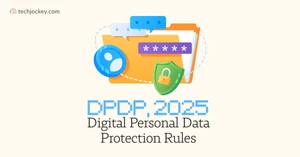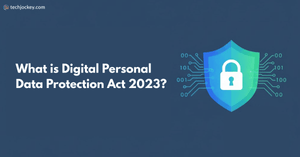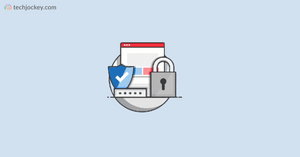What are Data Privacy Tools?
Data privacy tools, including data privacy management software, are essential solutions that enable companies to adhere to various global data privacy regulations such as the GDPR, CCPA, LGPD, and more. These tools play a central role in helping businesses identify sensitive data, like personally identifiable information, and ensuring they can promptly respond to customer requests in compliance with legally stipulated time frames.
The best data privacy management software empowers organizations to efficiently manage and safeguard sensitive data, ensuring they meet the stringent requirements of privacy regulations while maintaining a professional and technical approach in data handling and protection.
Why Use Data Privacy Tools?
Here's why companies rely on data privacy tools;
- Regulatory Compliance: The foremost reason for utilizing data privacy management platforms is to ensure compliance with stringent data protection regulations. These tools help companies navigate the intricate landscape of privacy laws, ensuring they meet the legal requirements and avoid potential penalties.
- Streamlined Data Subject Access Requests (DSARs): Data privacy management software facilitates the handling of Data Subject Access Requests or DSARs. It enables companies to process requests from individuals seeking access to their personal data, data portability, or data deletion within the mandated timeframes specified in privacy regulations.
- Data Discovery: To comply with privacy regulations, companies must first identify the personally identifiable information (PII) they store or have access to. Data privacy tools include features designed to discover and catalog this sensitive data.
- Enhanced Data Protection: These tools play a pivotal role in safeguarding sensitive data, mitigating the risk of data breaches, and maintaining the trust of customers and stakeholders.
- Efficient Data Management: Data privacy management tools offer efficient data handling and management, helping organizations maintain data privacy practices in a professional and technical manner. This, in turn, contributes to the overall success of a company's data privacy management platform.
Who Uses Data Privacy Tools?
Data privacy tools are primarily employed by businesses subject to global data privacy regulations.
- Privacy Professionals: These experts are integral to ensuring compliance with privacy regulations. They may be part of the legal department, regulatory compliance, information security, IT, corporate ethics, or even marketing departments. Some companies may also outsource privacy management to specialized service providers.
- IT Teams: IT staff plays a critical role in locating consumer data, an essential step in data compliance. They are responsible for data discovery and ensuring the secure handling of sensitive information.
- Security Teams: Protecting personally identifiable information (PII) and other sensitive data falls under the purview of security teams. They implement safeguards to prevent data breaches.
- Legal and Compliance Personnel: These professionals verify that legal obligations and contractual agreements are met, ensuring the company operates within the boundaries of privacy laws.
- Marketing Departments: Marketing teams are accountable for managing consumer consent preferences to ensure that data is used in compliance with regulations.
Key Features of Data Privacy Tools
Quality data privacy software should have these key features;
- Compatibility: Data privacy tools should be accessible across various company operating systems and devices, ensuring seamless integration into the existing infrastructure.
- Centralized Management: Centralized management and access controls allow for efficient oversight of privacy programs and data protection measures.
- Data Discovery: These tools should possess data discovery and management capabilities, enabling organizations to identify and manage sensitive data effectively.
- Usage Measurement: Data privacy software should offer data usage measurement features, helping track and monitor data usage in compliance with privacy regulations.
- Policy-Based Privacy Management: Policy-based privacy management ensures that privacy practices align with the organization's established policies and regulations.
- Risk Assessment: Incorporating risk assessment tools allows organizations to evaluate potential privacy impacts and mitigate risks proactively.
- Compliance Management: Robust compliance assessment and management tools assist in meeting the requirements of diverse privacy regulations and standards across different geographies.
- User-Friendly: The software should be easy to train on and use, ensuring that staff can efficiently implement privacy measures.
- Automation: Automation features minimize user interference, streamlining privacy processes and reducing manual workload.
- Identity and Access Management: Identity and access management tools help control user access to sensitive data, enhancing data security.
- Consent Management: Customer consent management controls are essential for managing and respecting user preferences regarding their data.
- Data Security: Strong data security features, including encryption at rest and in transit, protect data from unauthorized access or breaches.
- Data Loss Prevention: Data loss prevention and endpoint protection controls safeguard against data leaks and unauthorized data transfers.
- Device Management: Tailored device management capabilities, especially for mobile devices, ensure data protection on a variety of platforms.
- Compliance Monitoring: Tools for compliance and data breach monitoring and alerting help organizations stay informed and respond promptly to incidents.
- Backup Operations: Data privacy software should support backup operations to safeguard data integrity and availability.
Major Benefits of Data Privacy Tools
Data privacy tools deliver significant advantages to both individuals and organizations. These benefits include For Individuals;
- Enhanced Data Control: Data privacy tools grant individuals greater control over their personal information, governing who can access and how it's utilized. This control safeguards against identity theft, fraud, and various privacy-related risks.
- Peace of Mind: Knowing that personal data is secure provides mental peace. With Data privacy tools in place there is a reduced risk of data breaches and privacy-related crimes.
- Compliance Assurance: Data privacy tools assist individuals and organizations in adhering to data privacy laws and regulations, ensuring that personal data remains protected and in line with legal requirements.
For Organizations
- Heightened Security: Data privacy management tools provide security against data breaches and security threats by enhancing data security through features like encryption, access control, and intrusion detection.
- Risk Mitigation: Organizations that fail to safeguard personal data may face legal risks. Data privacy tools not only mitigate these risks, but reduce the potential for lawsuits.
- Enhanced Customer Trust: Demonstrating a commitment to data protection fosters customer trust. Organizations using data privacy tools can establish and maintain trust with their customers.
- Improved Brand Reputation: Organizations that prioritize data privacy are often viewed as ethical and socially responsible, which can enhance their brand reputation and attract more customers.
- Increased Employee Productivity: When employees are confident that their personal data is safeguarded, their productivity tends to increase. Data privacy tools contribute to a more productive workforce.
Top Data Privacy Tools in India
Here is the list of 10 best data privacy softwares;
| Software | Features | Price |
| TrustArc | Data privacy management, Cookie consent manager, Consent & preference manager, Individual rights manager, Data inventory hub | Price On Request |
| Seers | Enable Blocking of Scripts, Auto update Cookie Policy, Compliance with Reporting, eTraining in GDPR, Plug & Play Compliance | Starting at $7 |
| Segment | Data Security, Process Management, Data Analysis, Customer Segments, Data Integrations | Starting at $120 |
| MineOS | Automated data mapping, Smart data sampling, Identify & validate requests, Localize privacy experience, Create efficient privacy processes | Price On Request |
| Osano | One Platform for Privacy Programs, Cookie consent management, Compliant banner templates, Auto-categorization of site tags, Smart automation capabilities | Starting at $240 |
| Secuvy AI | Automated data security, Secure sensitive data, Automated Data Classifications, Data Inventory & Mapping, Fulfill Data Access Rights | Price On Request |
| illow | Automated Cookie Categorization, Scan your site automatically, Integration with WordPress & GTM, Comply with global regulations, Consent Log | Starting at $10 |
| PieEye | Cookie Compliance, managing consent Notices, Website Audit, Compliance & Trust, Keep an Audit Trail | Starting at $29 |
| brudata | Auto Identification, Attribute-Based Constraints, Preserve Referential Integrity, Frequency Distribution Conformance, Large Selection of Custom Generators | Price On Request |
| Vaporstream | Advanced content controls, Enterprise-level security, Send disappearing messages, Shred conversations, Communicate securely with external users | Price On Request |
Factors to Consider When Selecting Data Protection Tools
When selecting data protection tools, it is important to consider the following factors;
- Data Type: Determine the kind of data you need to protect. Sensitive data, like customer information or financial data, requires higher protection levels compared to non-sensitive data, such as marketing information.
- Data Environment: The size and complexity of your data environment are significant considerations. Select tools that can scale to meet the demands of your data environment, especially if it's large and intricate.
- Budget: Consider your budget as data protection tools come in a wide price range, from free options to high-cost solutions. Find tools that align with your financial resources while fulfilling your needs.
- User-Friendly: Assess the user-friendliness of the tools. If you require tools suitable for non-technical users, opt for those with a user-friendly interface and ease of operation.
- Encryption: Prioritize data protection tools with robust encryption features. Encryption is vital as it secures data, rendering it unreadable to unauthorized individuals.
- Access Control: Look for tools offering access control features, enabling you to regulate who can access your data and what actions they can perform with it.
- Data Loss Prevention (DLP): DLP features are essential for preventing data loss. They monitor and block unauthorized data transfers to maintain data security.
- Auditing and Reporting: Consider tools with auditing and reporting features. These capabilities allow you to track data access and activities, providing insights into who has interacted with your data and the actions they've taken.
- Future Scalability: Think about your future needs. Select data protection tools that can adapt and scale as your business grows and your data environment evolves.
































